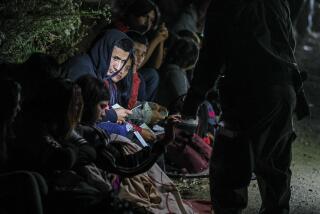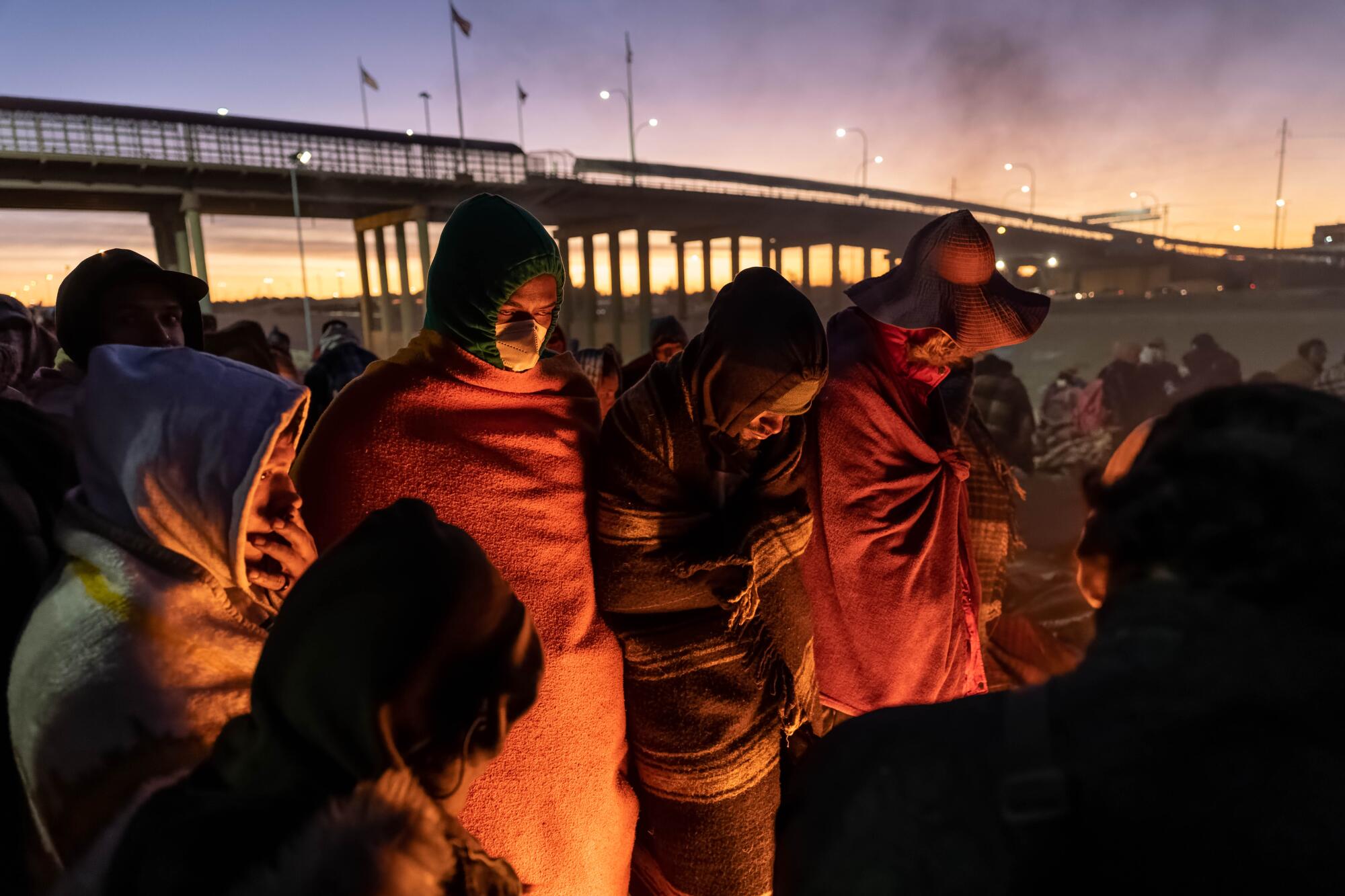
CIUDAD JUAREZ, Mexico — The first time Mari Marin Bastidas tried to claim asylum at the U.S. border, she was turned away by authorities who said a policy instituted to slow the spread of COVID-19 meant her case would not even get a hearing.
Dejected, she returned to her home in the state of Michoacan in western Mexico.
Two years later, she is back at the border to try again. Word has been spreading that the policy, known as Title 42, is about to be lifted.
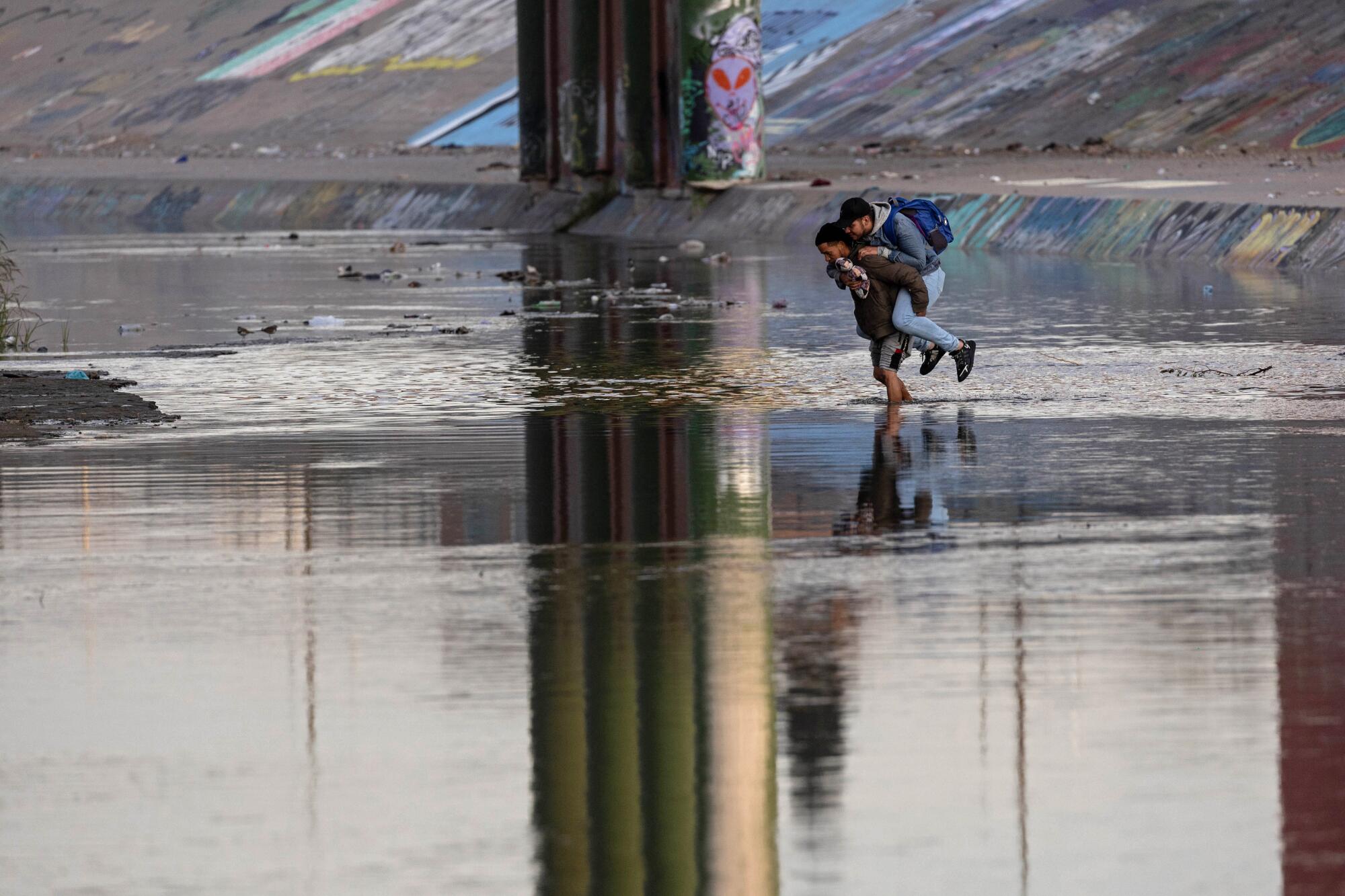
“I decided to come because of the opportunity that is opening up,” said Bastidas, 29. “I’m not going back anymore.”
The fate of the policy now rests with the U.S. Supreme Court as anxiety and confusion build on both sides of the border. In Ciudad Juarez, untold numbers of asylum seekers have been gathering in recent weeks. Across the Rio Grande in El Paso, the mayor has declared a state of emergency in anticipation of a massive influx.
Bastidas, along with her 8-year-old daughter and two brothers, was among scores of migrants waiting along a narrow section of the river.
Some waded across to present themselves to border agents, either not realizing that Title 42 was still in effect or willing to take their chances anyway.
Bastidas and her family decided to wait and made their way to a migrant shelter nearby. They had $500 to carry them over for now.
They plan to claim asylum based on a fear of a local gang that she said had threatened her family for failing to pay a monthly extortion fee of roughly $400. Another brother had been killed several years ago by gang members running a similar scheme.
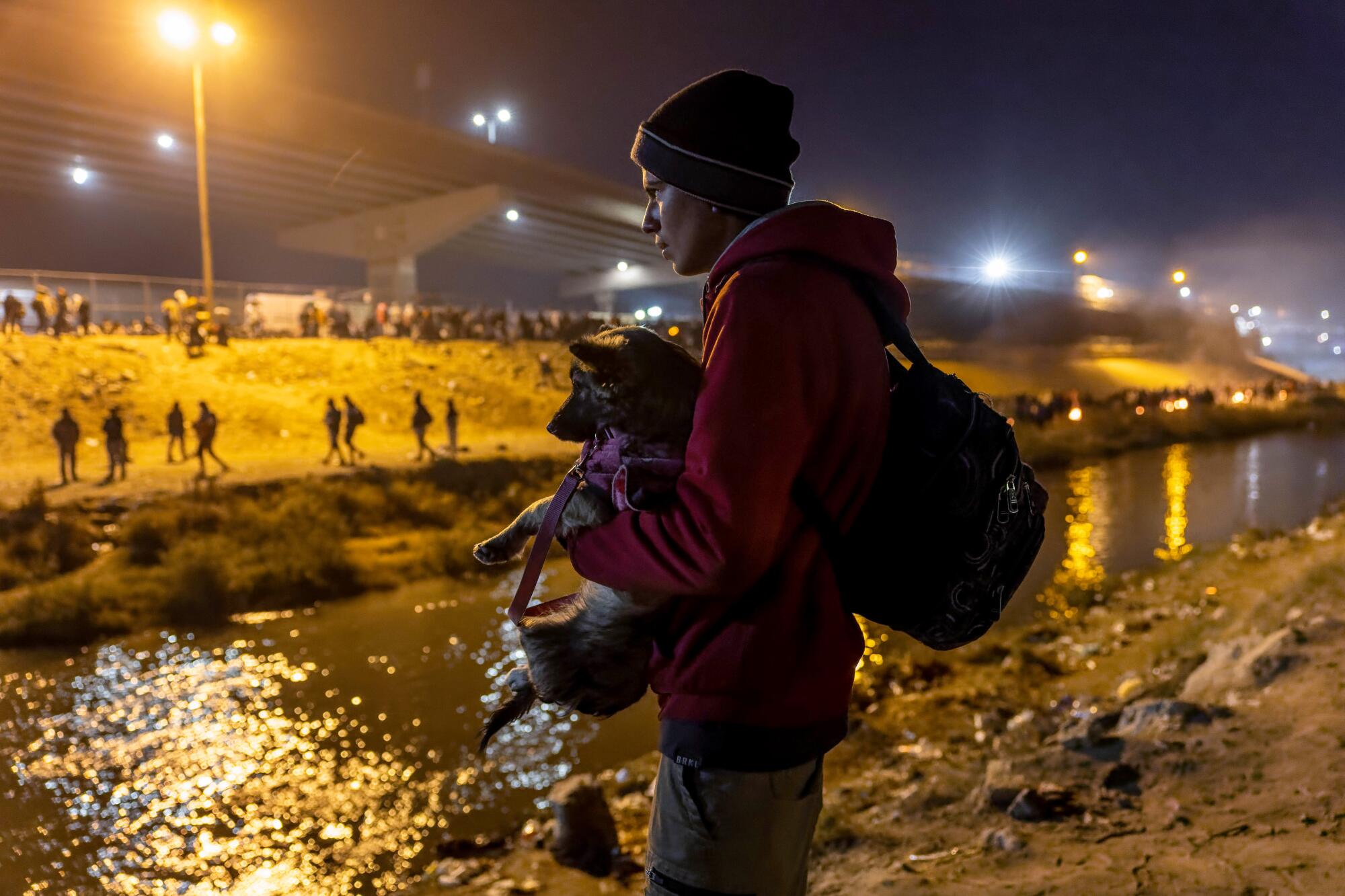
Before Title 42, the United States considered all asylum claims, which often meant releasing migrants into the U.S. until a court rules on their cases — a process that can take years because of a large backlog. A small minority of asylum claims are ultimately accepted. Fleeing poverty is not a valid basis for a claim.
Under Title 42, a decades-old public health measure that the Trump administration resurrected in the early days of the pandemic, asylum seekers can be quickly expelled.
The Biden administration has opposed the policy in court while continuing to use it with help from Mexico, which agreed to accept Central Americans, and later Venezuelans, who the United States turned away.
But last month, a federal judge ruled that Title 42 was being used arbitrarily and was no longer justified as a pandemic health measure. He ordered it be lifted by Dec. 21.
Some 19 Republican-led states appealed to the Supreme Court, arguing that ending the policy would result in a surge of new migrants, and on Monday — two days before the deadline — Chief Justice John G. Roberts Jr. ruled that it would remain in place until the high court decided the case. If the policy falls, it is possible that the Biden administration could find new ways to limit asylum seekers.
Still, El Paso has been bracing for the day when asylum seekers can no longer be summarily turned away.
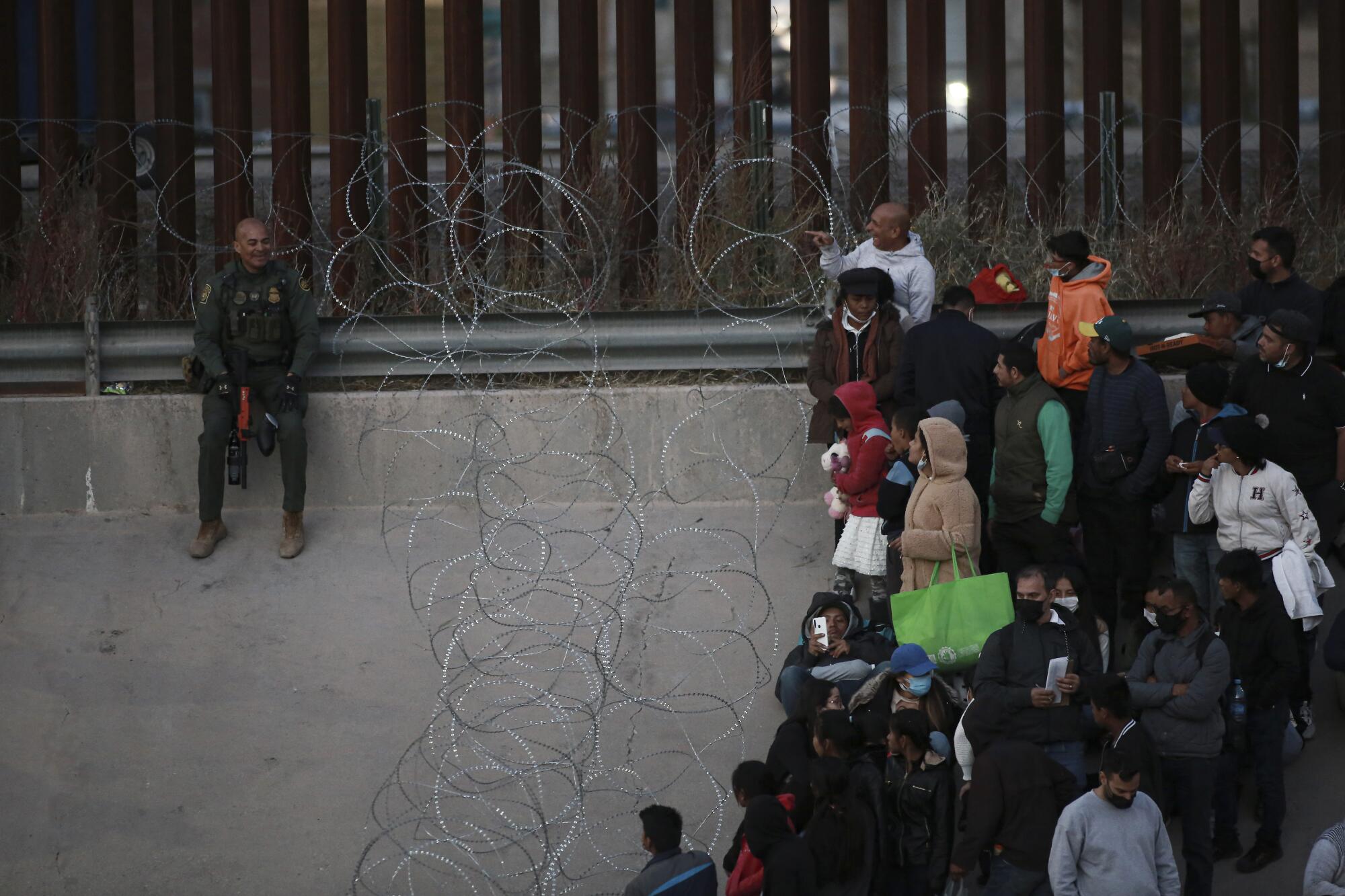
At one popular crossing spot along the Rio Grande, members of the Texas Army National Guard lined the riverbank with razor wire this week as a deterrent, and were standing watch next to their Humvees.
But already, 1,500 migrants a day on average are being taken into Border Patrol custody in the El Paso region, according to the Department of Homeland Security. After their fingerprints and basic information are recorded, many are expelled under Title 42. Some may be transferred to an immigration detention facility.
Others who might qualify for a Title 42 exemption — usually on humanitarian grounds or because Mexico limits how many migrants it accepts from various countries — may be released and allowed to remain in the United States, often with a court date.
This week, more than 50 migrants were staying at the Annunciation House shelter just north of the border. With cots in the chapel and playroom, the shelter has room for 60.
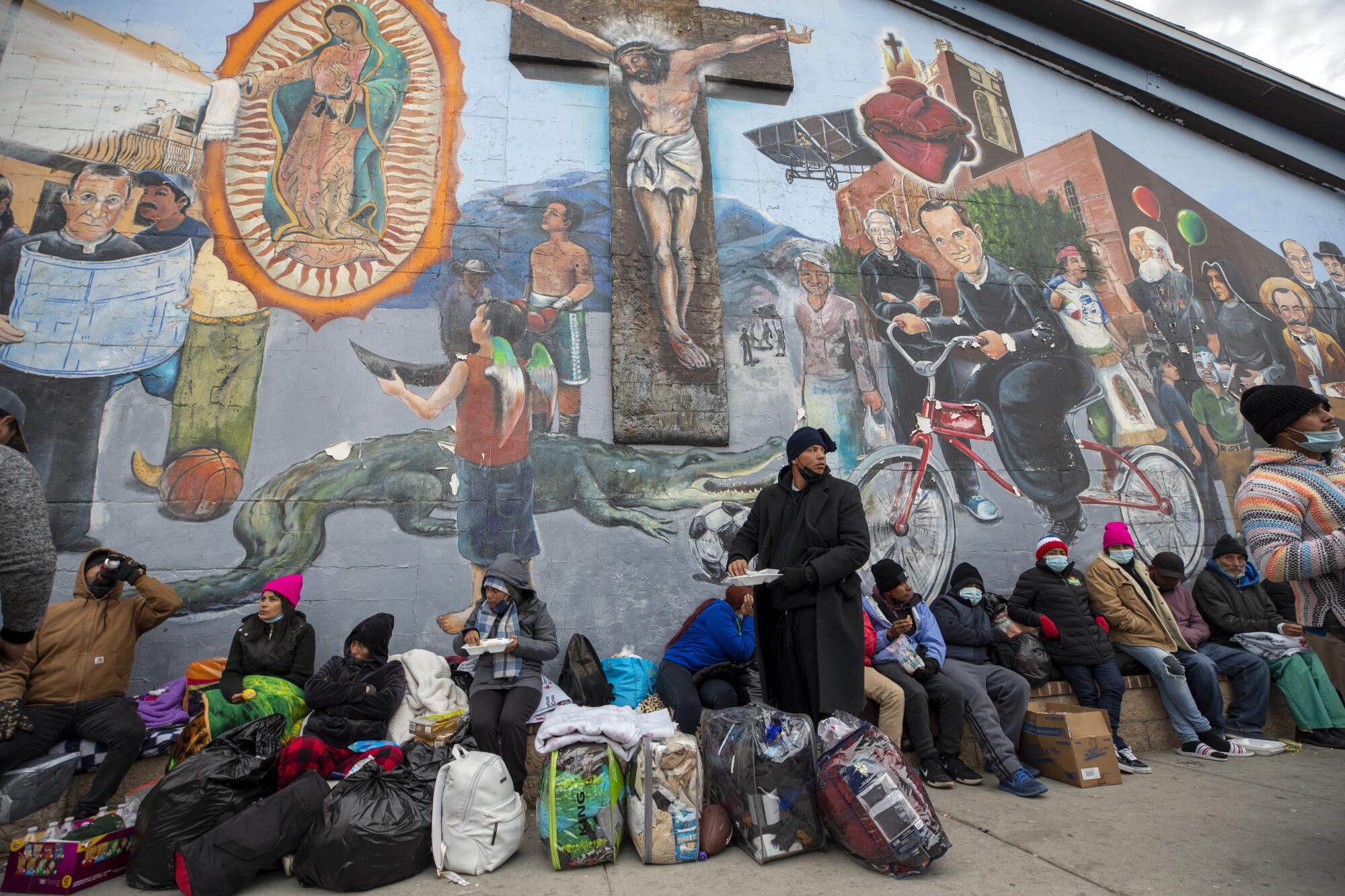
Most move out within 48 hours to live with relatives or friends. Others have been bused to religious communities across the country that have offered to take them in.
The quick turnaround is important to make room for new migrants, said Ruben Garcia, who founded and runs the shelter.
“If we’re having a difficult time dealing with the number of people who are arriving and we haven’t even lifted Title 42, can you imagine what’s going to happen when Title 42 gets lifted?” he said.
In anticipation, the city has opened up its convention center for temporary housing. About 200 of the 1,000 beds there were filled on Thursday night.
Still, some migrants are already living on the streets.
Not far from the convention center — where ice skaters glided around a large rink beside a lit-up Christmas tree — dozens of Venezuelan migrants had set up camp along two blocks of sidewalk. Sheets of cardboard served as mattresses. Locals dropped off donations of clothes.
A 26-year-old named Yesimar — she spoke on condition that her last name not be used, because she had just crossed the border illegally — wrapped herself in a blanket. It was 7 p.m. and the temperature had dropped to 40 degrees.
She and her husband fled Venezuela five years ago and had been living in Peru. It took them three months to reach the U.S. border. With Title 42 still in place, they felt they had no choice but to sneak across.
They came through a space in the border fence and ducked into a McDonald’s to change clothes and take a breath after eluding authorities.
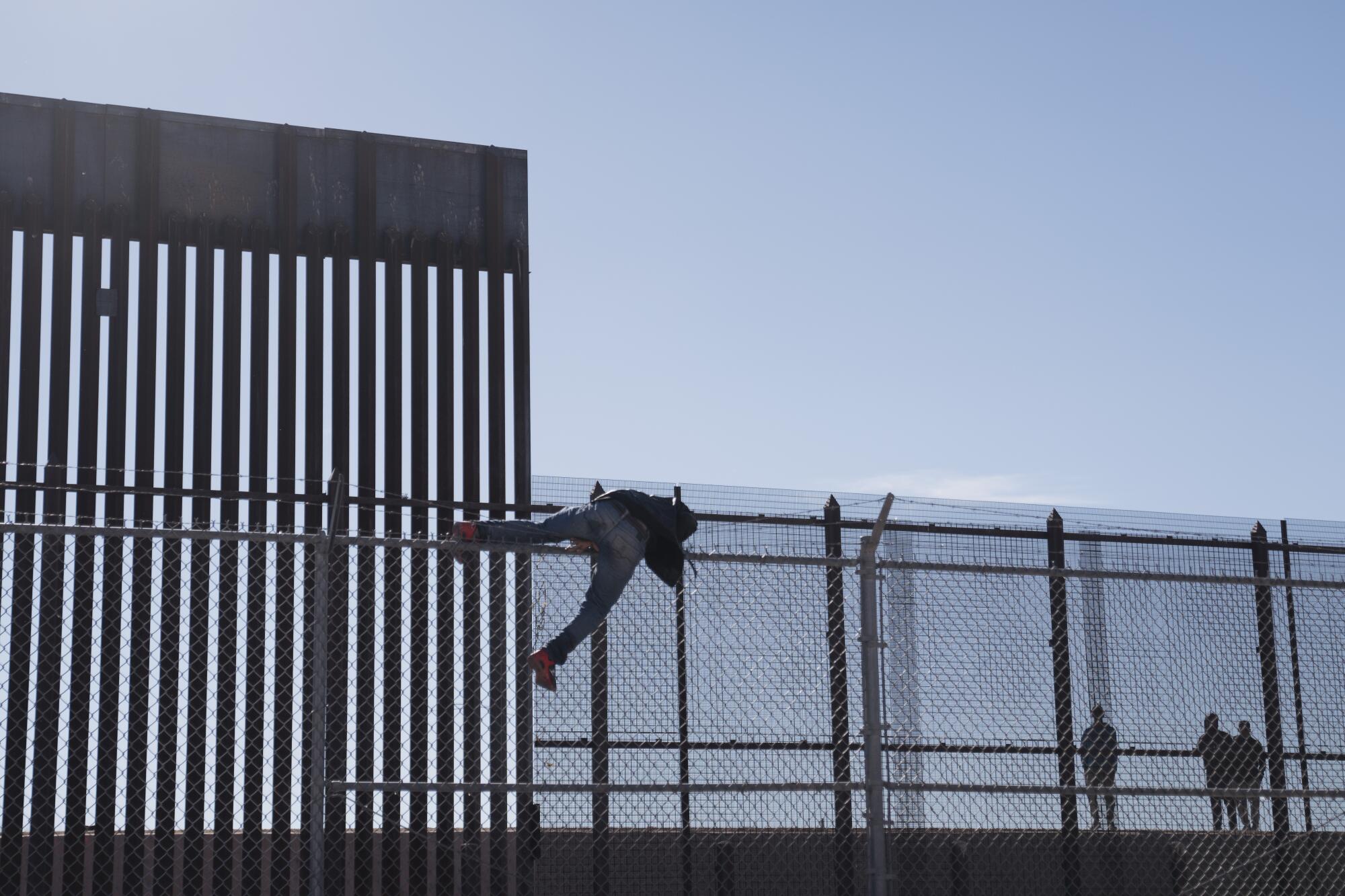
“The truth is that they don’t give us the opportunity to come into this country,” Yesimar said. “We never came with the idea of coming in illegally.”
Back in Ciudad Juarez, many more migrants are waiting it out.
Alexander Diaz, his wife and their 3-year-old son were down to about $100. The 24-year-old Venezuelan has been giving $2 haircuts to fellow migrants in an alley close to the Rio Grande.
The family found a spot at a shelter, but the bathroom doesn’t work. “Imagine, putting up with the cold, without a shower,” Diaz said.
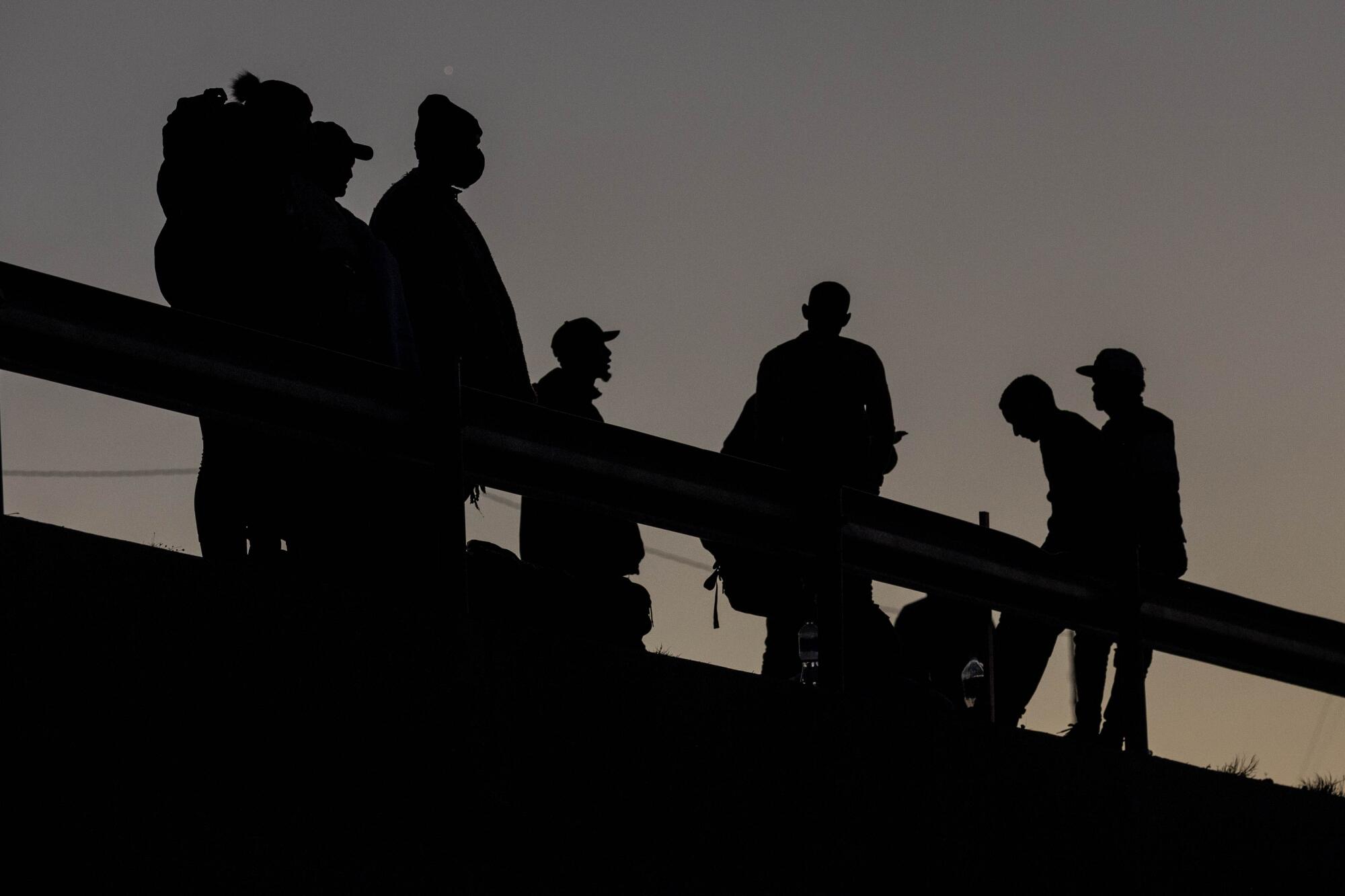
Jesús Carrera, 22, said he makes $15 a day washing car windows at a stoplight. A generous local gave him and other migrants a place to sleep, and he speaks daily to his mother in Venezuela, who urges him to come home. He hasn’t seen her since leaving the country six years ago in hopes of escaping poverty.
He tried to claim asylum at the U.S. border in October but was expelled under Title 42 and moved to the Mexican state of Chiapas. He arrived at the border again last weekend because he thought the policy was ending.
“I’m asking God to change my luck,” he said. “It’s time.”
Rosalia Castro Sosa, a Sears saleswoman from southern Mexico, arrived in Ciudad Juarez on Wednesday, thinking that Title 42 had been lifted as scheduled.
She immediately crossed the river and turned herself in, waiting for hours in the cold in a long line for officials to take down her information. Then they dropped her off at the Mexican side of a border bridge.
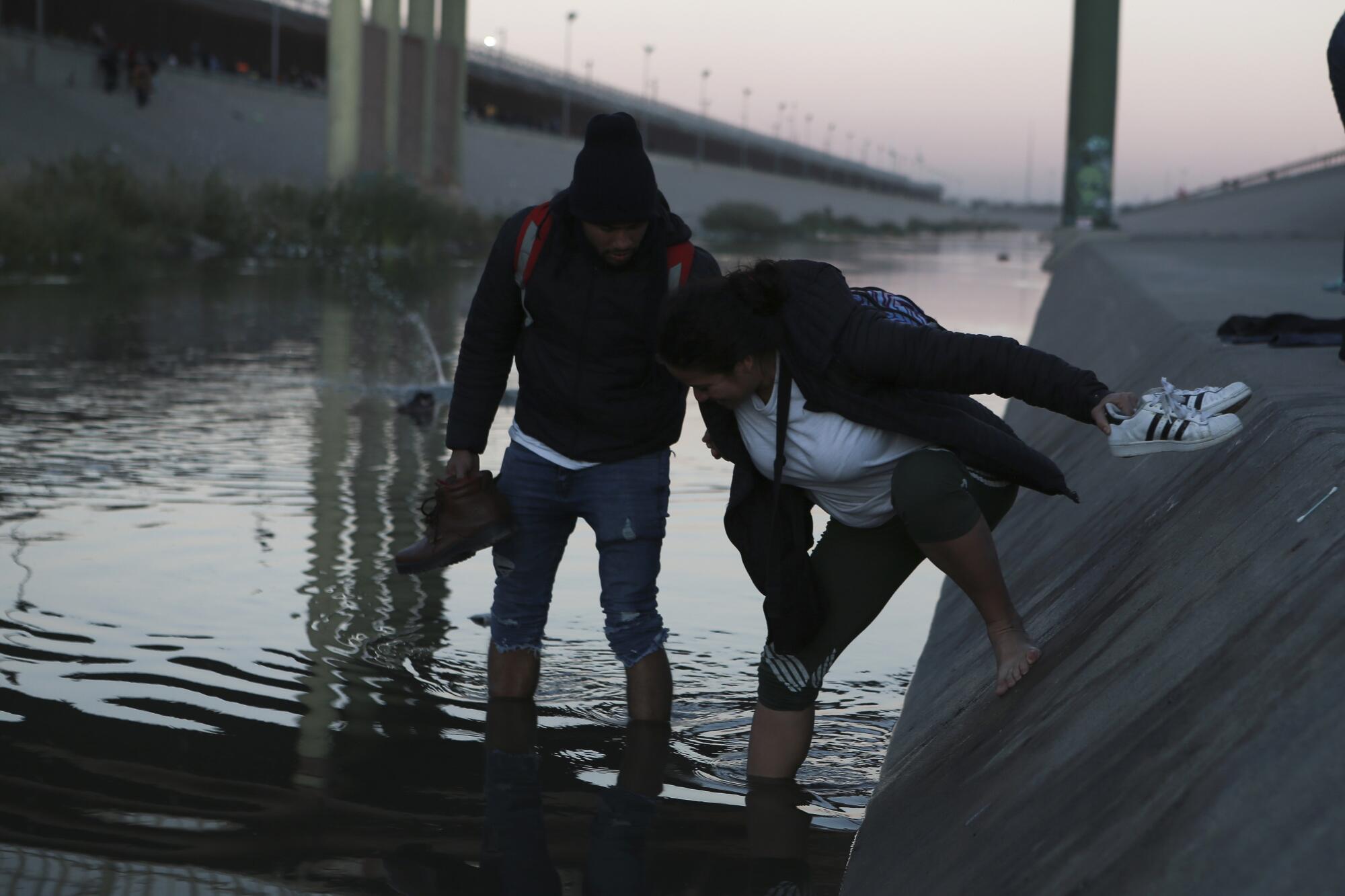
Waiting for the policy to be lifted, Sosa moved into a church shelter. She has made some cash by opening the door for customers entering convenience stores. A local restaurant fed her in exchange for waiting tables. She hopes to work in the U.S. to finance an ear operation for her 9-year-old son.
“In the name of God, I’m going to get there,” she said. “I don’t know how, but I will.”
At the Good Samaritan shelter, many of the 73 migrants there were waiting to see a doctor. Migrants can stay for months as they wait for appointments with immigration officials, and in that time children attend school — where they take English classes. Migrants can also receive therapy.
Pastor Juan Fierro, who runs the shelter, said he viewed the end of Title 42 with skepticism.
“How many times have they said it’d be over?” he said.
Miller reported from Ciudad Juarez and El Paso. Special correspondent Gabriela Minjares in Ciudad Juarez and Times staff writer Hamed Aleaziz in Healdsburg, Calif., contributed to this report.
More to Read
Sign up for Essential California
The most important California stories and recommendations in your inbox every morning.
You may occasionally receive promotional content from the Los Angeles Times.


